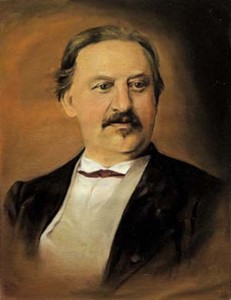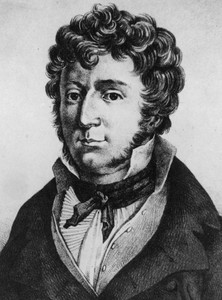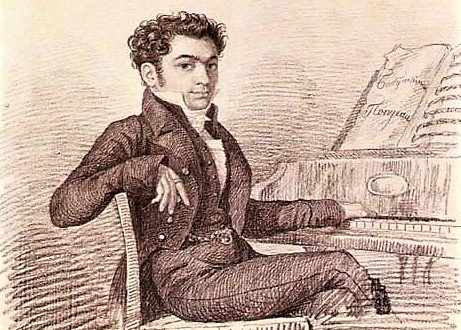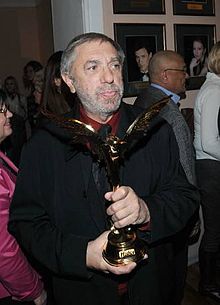
Friedrich von Flotow |
Friedrich von Flotow
Flotov. “Martha”. M’appari (B. Gigli)

Flotov’s fame is now based not even on one opera “Martha”, but on one aria from it, although in the middle of the 30th century he was among the most popular authors of German comic operas. The total number of them exceeded XNUMX at Flotov.
The surname Flotov, which sounds so Russian, actually comes from the name of the family castle Vlotho in Westphalia near Minden on the Weser River (now the regional center of North Rhine-Westphalia). The composer’s ancestors moved to Mecklenburg back in the 1810th century, his baronial family was considered one of the oldest in this land and was the overlord of many surrounding landowners. In 26, the composer’s father, an officer in the Prussian army, became the owner of the land. However, the invasion of Napoleon led him to ruin, and the future composer Friedrich von Flotow was born on April 1812, XNUMX in a modest country house of the Teitendorf family estate in Mecklenburg. His father assigned him to the diplomatic service, saw in music only a pleasant pastime and in every possible way opposed the development of the boy’s early talent. Friedrich received his first piano lessons from his mother and home teacher, then studied organ and harmony, played the viola in a local singing circle, and began to compose in secret. When he was sixteen years old, his father gave in to persistent requests and went with his son to Paris. Here Flotov studied with the best teachers – the virtuoso pianist J. P. Piksis and the professor of the conservatory, the composer A. Reicha (Berlioz was his student at the same time).
The July Revolution of 1830 forced Flotov to leave Paris, where he returned in May of the following year and became close friends with Meyerbeer, Offenbach, Rossini, and authors of French comic operas. Flotov wrote his first operas for amateur performances in aristocratic salons. This makes his name famous in Paris, and finally, in 1835, the premiere of his opera “Peter and Katerina” takes place on a professional stage – at the Schwerin Court Theater. He achieves Fleets and productions in a small Parisian theater, for which he creates operas in collaboration with French composers. The first success was brought by The Shipwreck of the Medusa (1839), after which Flotov entered the main stages of the French capital – the Grand Opera and the Opéra-Comique. Recognition in Germany came with Alessandro Stradella, an opera to a German libretto staged in Hamburg (1844) and immediately in other European cities. However, this success was overshadowed three years later by Marta, Flotov’s highest achievement, to which he never managed to rise again in all the subsequent 35 years of his work.
In 1855, Flotov was invited to the post of director of the Court Theater and head of court music in Schwerin, he devoted a lot of effort to the reorganization of the orchestra, but was defeated in his “seven-year war” with intrigues and returned to Paris in 1863. Five years later, he settled on his own estate in Lower Austria and found himself more creatively connected to Vienna, the city where he was especially loved. Viennese theaters demand more and more productions, and Flotov is reworking his old French operas in collaboration with a German librettist. However, each subsequent opera turns out to be weaker than the previous one, so that only a shadow remains of the author of “Marta” (“The Shadow” and “His Shadow” are the French and German names for one of Flotov’s late operas). The composer spent the last years of his life on an estate near Darmstadt, and in April 1882 he traveled to Vienna, where he was invited as a guest of honor to the 500th performance of Martha at the Court Theatre. This is how he celebrated his 70th birthday.
Flotov died on January 24, 1883 in Darmstadt.
A. Koenigsberg





